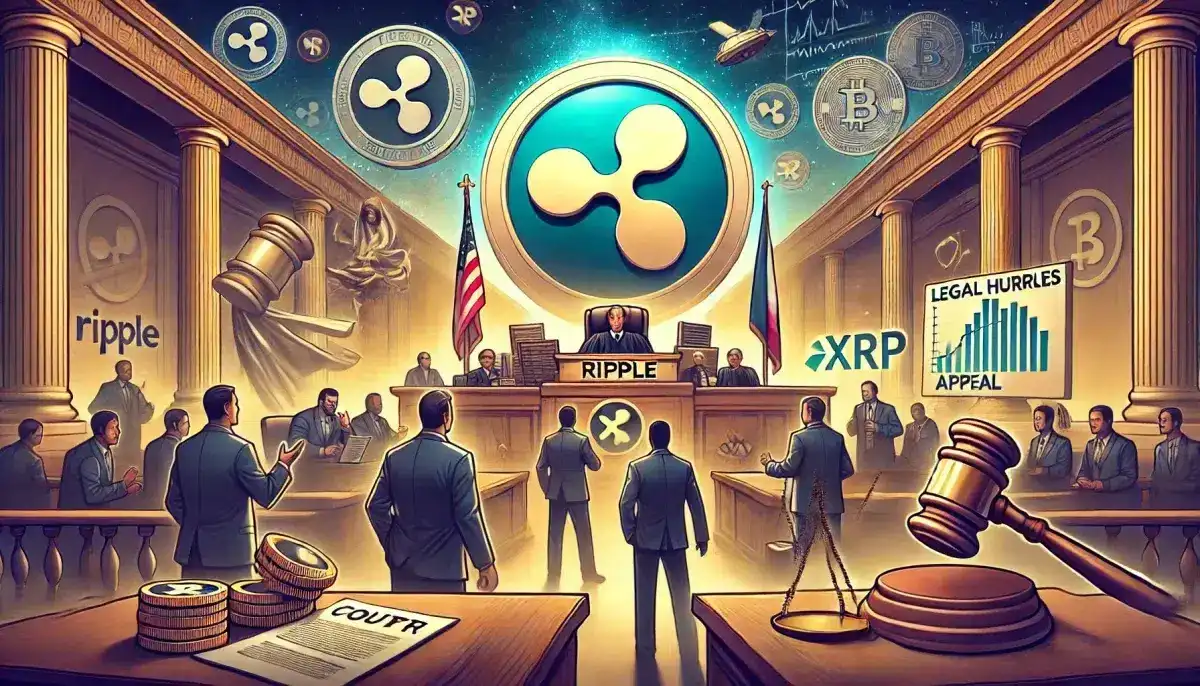
- Professor Reiners emphasized the need for Congress to address the regulatory gap in the crypto spot market.
- Ripple’s argument against XRP being a security aligns with Reiners’ testimony on investment contracts.
Stuart Alderoty, Ripple’s Chief Legal Officer, has responded to Professor Lee Reiners testifying before Congress, which provided an illuminating viewpoint on the continuing legal dispute between Ripple and the United States Securities and Exchange Commission.
Reiners, known as both a pro-SEC and anti-crypto advocate, acknowledged the SEC’s recent setback in the Ripple case, underscoring three key factors with substantial significance for the crypto industry and Ripple’s journey.
Prof. @leereiners testified before Congress recently, and while there’s much to critique, even this pro-SEC/anti-crypto witness acknowledged the SEC’s loss in the Ripple case, as well as:
1. A regulatory gap in the crypto spot market that only Congress can close.
2. Securities…— Stuart Alderoty (@s_alderoty) September 20, 2024
Questioning the Regulatory Gaps and Decentralization in Crypto Laws
To begin, Reiners identified a significant regulatory gap in the crypto spot market, pointing out that neither the SEC nor the Commodity Futures Trading Commission (CFTC) currently regulate this sector. This observation highlights an obvious flaw in the current regulatory framework for cryptocurrency.
Reiners believes Congress should take a more active role in closing this regulatory hole. Ripple’s Alderoty agreed, emphasizing the importance of legislative action to better address the changing crypto ecosystem.
Another key argument addressed by Reiners was the concept of decentralization in relation to securities legislation. He criticized the idea that securities regulations should be predicated on a “mystical” decentralization threshold, alluding to a 2018 speech by former SEC Director William Hinman.
This statement has sparked debate within the crypto community, particularly because it hinted that certain cryptocurrencies could be immune from securities restrictions if they achieved a sufficient level of decentralization.
Reiners’ stance is consistent with the broader crypto industry, which has long stated that decentralization should not be used to determine whether an asset is a security.
Reiners also addressed the topic of investment contracts, citing analogies to the landmark Howey Test case concerning orange groves. He underlined that the object of an investment contract, such as orange groves, is not a security in and of itself. A management contract must be present when something is considered security.
This viewpoint is consistent with Ripple’s central argument that XRP should not be categorized as a security since it does not meet the criteria for being an investment contract.
The Impact of SEC Changing Leadership on Crypto Regulation
One of Reiners’ most memorable comments was that “SEC chairs come and go,” implying that regulatory landscapes might move dramatically with changes in leadership.
This insight serves as a reminder of the transient nature of regulatory interpretations, implying that Ripple’s case may result in different consequences if future SEC leadership takes a fresh perspective on cryptocurrencies.
While the crypto community eagerly monitors these events, doubt remains over XRP’s future, notably whether the SEC would appeal the Ripple case verdict before the deadline of October 7, 2024.
This lingering uncertainty is currently placing downward pressure on the XRP price, which was $0.5843 at the time of this post, representing a slightly 0.55% fall over the last 24 hours.
On the other hand, Ripple’s partner, SBI Holdings, has made substantial progress in researching the integration of token-based bank deposits with central bank digital currencies. According to a CNF report, SBI Holdings has joined Project Agora, which aims to examine how tokenized commercial bank deposits might be integrated with wholesale CBDCs on a single ledger.



















